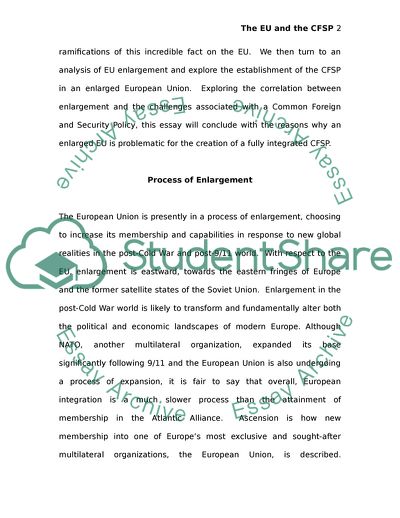Cite this document
(A Common Foreign and Security Policy Essay Example | Topics and Well Written Essays - 1750 words, n.d.)
A Common Foreign and Security Policy Essay Example | Topics and Well Written Essays - 1750 words. Retrieved from https://studentshare.org/politics/1721771-can-the-eu-successfully-develop-a-common-foreign-and-security-policycfsp
A Common Foreign and Security Policy Essay Example | Topics and Well Written Essays - 1750 words. Retrieved from https://studentshare.org/politics/1721771-can-the-eu-successfully-develop-a-common-foreign-and-security-policycfsp
(A Common Foreign and Security Policy Essay Example | Topics and Well Written Essays - 1750 Words)
A Common Foreign and Security Policy Essay Example | Topics and Well Written Essays - 1750 Words. https://studentshare.org/politics/1721771-can-the-eu-successfully-develop-a-common-foreign-and-security-policycfsp.
A Common Foreign and Security Policy Essay Example | Topics and Well Written Essays - 1750 Words. https://studentshare.org/politics/1721771-can-the-eu-successfully-develop-a-common-foreign-and-security-policycfsp.
“A Common Foreign and Security Policy Essay Example | Topics and Well Written Essays - 1750 Words”. https://studentshare.org/politics/1721771-can-the-eu-successfully-develop-a-common-foreign-and-security-policycfsp.


